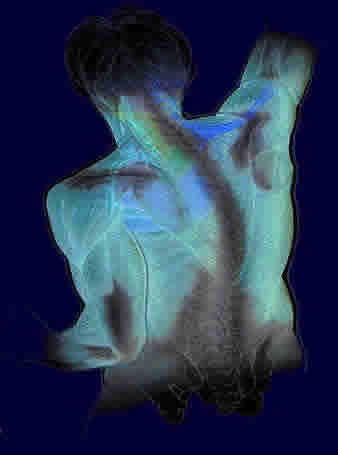fibromyalgia
What is FirBromyalgia
Fibromyalgia is a chronic condition characterized by pain and stiffness in soft tissues; including the muscles, tendons, and ligaments. With fibromyalgia, the common areas that are painful or tender when pressure is applied are tender points in the neck, shoulders, upper back, upper chest, elbows, low back, hips and thighs.
Fibromyalgia is more common in women than in men. According to the American College of Rheumatology, fibromyalgia affects 3 to 6 million people in the United States.
Fibromyalgia symptoms may vary from person to person and they'll probably never disappear completely. Fibromyalgia is not deforming, progressive or life threatening. Proper treatments and self-care programs can treat fibromyalgia symptoms.
Signs and Symptoms of Fibromyalgia. Fatigue, painful and tender points in the body, sleep disorder and others...(more) |

Treatment of Fibromyalgia in fibromyalgia, the best approach is to combine time tested remedies with what science can offer.
Nutrition and Diet for Fibromyalgia
Supplements for Fibromyalgia
Exercise for Fibromyalgia
Taichi for Fibromyalgia
Relaxation Theraphy for Fibromyalgia
Herbal Medicine for Fibromyalgia Treatment
Social Support for Fibromyalgia
Over-the-counter drugs for Fibromyalgia Treatment
Home Remedy for Fibromyalgia
Herbal Medicine for Fibromyalgia Treatment
Aroma Theraphy for Fibromyalgia
Homeopathy for Fibromyalgia Treatment
Chinese Medicine for Fibromyalgia Treatment
Acupuncture and Fibromyalgia
Chiropractic Treatment for Fibromyalgia
Conventional Medicines for Fibromyalgia Treatment


